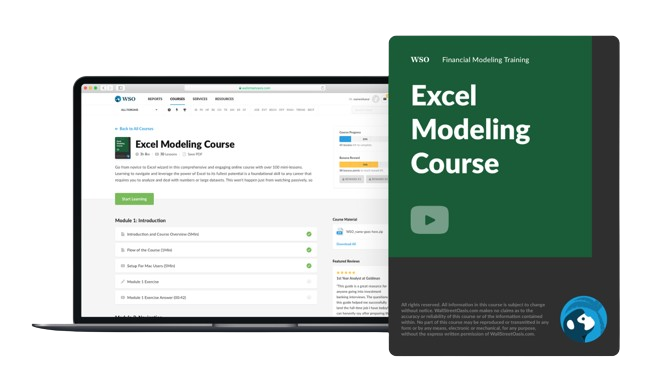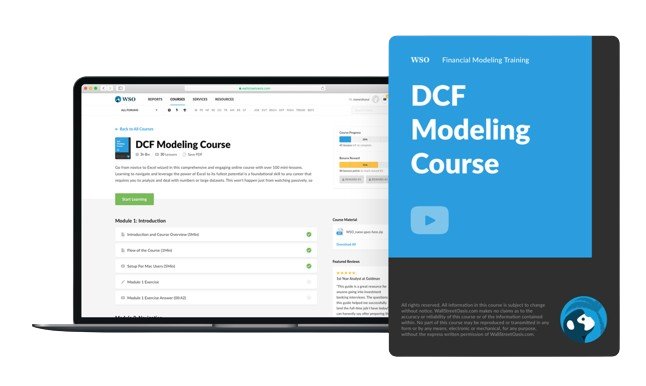Franchisee
It is an independent small business proprietor running a franchise.
What is a Franchisee?
An independent small business proprietor running a franchise is a franchisee.
By doing this, these have acquired the right to promote and sell the same brand while adhering to the same standards as the original business by using the trademarks, related brands, and other proprietary knowledge of an existing business.
A company that uses the trademarks of an already-established company buys the right to use a parent company's names, materials, and other information to market the same products and do business under the same guidelines as the original company.
The outlet owner becomes an independent business owner and operator of stores that operate similarly to its parent company's stores.
What Distinguishes a Franchisor from a Franchisee? A successful corporation trying to grow is known as a franchisor. For a charge, they grant franchises the right to conduct business using their brand name and their tried-and-true procedures and systems.
Franchisees purchase the right to employ a franchisor's brand, procedures, and methods. In return, they receive coaching, assistance, on-call knowledge, and much more that aid in developing their own prosperous company.
Understanding Franchises
Franchises are a prevalent type of business. Traveling more than a few blocks in most cities is difficult without coming across an outlet establishment.
Well-known outlet business models include H&R Block (NYSE: HRB), Subway, United Parcel Service, and McDonald's (NYSE: MCD). In addition, outlet business opportunities in various industries are available in the United States.
Making an outlet for a company's goods and brand name could be one way to get a more significant market share or expand its geographic reach at a minimal cost. The original or currently operating company that sells the license to use its name and concept is known as the franchisor.
The person who purchases the right to market the franchisor's products or services using the established brand and business mode is called a franchisor.
Franchisors and their franchisees naturally have an advisor-advisee relationship. When it comes to general business methods like hiring and training employees, opening a firm, advertising products or services, sourcing supplies, etc. The franchisor continuously offers advice and support.
To avoid competition and help ensure success, the franchisor first offers its advice in an exclusive area where no other organization operating under the same general business is now present.
Franchises often pay a startup fee plus ongoing gross earnings to the outlet's owner in exchange for the franchisor's advisory role, use of intellectual property, and experience.
Like any investment, there are advantages and disadvantages to buying an outlet.
Do a comprehensive analysis of your choices before making a decision.
Causes
There are two causes for franchises:
- First, the franchisor company wants to take more of the market.
- The franchisor company intends to expand its regional reach at a lesser price.
Both goals can be achieved through franchising. The franchisor, who is the primary operator of the company, may provide other prospective business owners the right to use the company's name and concept while running their enterprise.
The person who purchases the franchisor's current business model and trademark to obtain the right to market the franchisor's products or services is what the franchisee is known for.
Who Enters Into a Franchise
For the following reasons, inexperienced business owners frequently choose to join an outlet:
- A smaller initial investment is required because starting an outlet is less expensive than creating a new business.
- The franchisor provides the proper assistance and direction to the outlet's owner for them to succeed.
The Relationship Between a Franchisee and Franchisor
A franchisee and a franchisor have a relationship similar to that of a mentor and their customers. The franchisor offers direction and support for all phases of the franchisee's company operations, including hiring, setting up, marketing, and sourcing issues.
The franchisor will first give the owner a specified site to set up the shop. The location will be where the business's industry offers excellent opportunities for expansion and success without intense competition or other barriers.
The outlet owner must pay a startup fee and ongoing payments to the franchisor based on a portion of their gross earnings in return for the franchisor's support and usage of intellectual property.
How the Franchisee Must Operate
The outlet must adopt the franchisor's business model for alignment reasons. Under the same brand name, it is critical to maintain uniform operations, culture, and goods and services.
Additionally, they are in charge of expanding the franchisor's brand recognition through marketing initiatives. However, before being made public, any marketing effort must adhere to and be approved by the franchisor.
Finally, the outlets' managers or supervisors must ensure that all offers are legitimate, under-the-franchisor goods and services.
Franchisee Benefits
Some of the advantages are:
1. Support
When you have a problem, you can always contact someone:
- Unsure of how to get a client to pay on time?
- Uncertain about how to handle a supplier situation?
- Have trouble expanding your business?
- Unsure about when to bring on new team members?
You can call your franchisor and count on receiving experienced guidance from someone who has handled everything before for these questions and a million more.
This is very helpful in emergencies. As a small business owner, you must make an educated assumption and hope for the best. You have access to a large group of knowledgeable professionals.
2. Branding
As an outlet, you work under the respected brand of your franchisor. First off, this eliminates the need to establish your branding and align it with the mission of your business.
But more importantly, it means you don't have to make any of the efforts often involved in promoting and marketing your new venture. Your franchisor has used this name to do business for many years. They have a reputation for excellence in quality, value, or all three.
As you launch your own company within their network, you rely on their reputation. Therefore, the marketing and advertising they conduct for the network will also benefit you.
3. Marketing
Most of your time, energy, and resources—not to mention your money—will likely be spent on marketing your new company.
Your franchisor should be handling this for you as a franchisee. For instance, Fantastic Services in the UK manages all of its franchisees' marketing, helping them with advertising and other aspects.
This implies that our service delivery outlets have to focus on giving the best possible customer service during their working day. Fantastic Services would be the one who would focus on marketing your outlet, which would help you deliver the best possible service.
4. Processes
A business that may be prosperous and widespread now did not begin that way. As they strived for achievement, they made a million little errors. When they made mistakes, they ultimately had to go back. They had to put in a lot of effort to reclaim that territory.
As an outlet for the parent company, you may avoid making all those costly errors by using others' hard-learned lessons. For example, consider the following simple scenario of a new solo business owner providing a household cleaning service:
You launch your company and begin offering your services. But, unfortunately, you don't appreciate the value of training your cleaners, ensuring they have access to the best tools, and putting solid quality assurance protocols in place until you have a few unsatisfactory appointments.
Your franchisor has already figured this out for you as a franchisee. From the very beginning, you can start offering successful services. Your clients will want to rebook these services over and over again.
5. Obligations
Because a franchise contributes to a uniform condition of operations across all businesses under the same brand name, the outlets must adhere to the tested business model already in place.
The outlet and owner are in charge of expanding the business within its specific area of operation using conventional forms of advertising and marketing.
However, before being made available to the general public, all marketing initiatives must adhere to and be approved by the original establishment.
They are responsible for managing the outlet and are expected to maintain the franchisor's brand name by sticking to authorized goods and services associated with the original company's name.
The outlet is responsible for carrying out its portion of the agreement. This typically entails providing the best caliber of services following the advice and specifications provided by the franchisor.
While doing so, they have access to their franchisor's knowledge, utilize all of their trademarks, and benefit from the procedures their franchisor has developed over years of operation.
Franchise Example: McDonald's
The fast-food goliath McDonald's is a firm with a presence worldwide thanks to its outlets.
The McDonald brothers established McDonald's in San Bernardino, California, in 1940. But in 1955, Ray Kroc established the first legitimate outlets for the predecessor of the present-day McDonald's Corp. (MCD), McDonald's System, Inc., in Des Plaines, Illinois (a suburb of Chicago).
At the end of the 2020 fiscal year, 39,198 McDonald's restaurants were operating in 119 nations, with 93.17 percent franchised. The business will have 40,031 outlets in 2021, according to Statista. The long-term objective of the firm is for outlets to possess 95% of McDonald's restaurants.
The land and structures that outlets utilize are either owned by McDonald's or are leased to them for an extended period.
By the terms of the outlet agreement, the outlets contribute a percentage of the necessary funding by making an initial investment in the furniture, accessories, décor, and signs for the location that the franchisor will supply.
For prospective outlets to purchase an existing restaurant, McDonald's needs a down payment of 25% (of the entire cost), of which at least 25% must be paid in cash.
The company's dedication to upholding uniform standards in its menu that resound throughout its many chains contributes to the legendary success of the McDonald's outlet tale.
The quality of a Big Mac in Los Angeles should be the same as it is in London, and it is. It takes advantage of McDonald's substantial brand equity and extensive global experience while managing its pricing and staffing issues.
Franchise Example: KFC
KFC is an illustration of a franchised fast food establishment. Colonel Sanders had to close his restaurant and motel in the 1950s, so he sold his fried chicken recipe to Peter Harman, the proprietor of a hamburger joint in Salt Lake City, Utah. Mr.Harman became his first franchisee.
Sanders convinced numerous other restaurant proprietors to include his fried chicken on their menus throughout the years.
Sanders eventually spread his recipe across the nation, and by 1963, he had licensed over 600 locations in the United States and Canada. But, over time, the company expanded to a point where Sanders could not manage it.
As a result, in 1964, he sold his company to a group of investors. Since then, KFC has established itself as a well-known global fast-food chain specializing in fried chicken.
Procedures Followed Before Franchising a Business
When you license your business, it indicates that you have taken the necessary administrative and legal measures to promote license sales, assist, and expand your enterprise.
Your license attorney must draft and issue a franchise disclosure document (FDD) following applicable federal and state laws.
To offer it in states where FDD registration and filing are necessary, you'll also need to register or file your FDD with the state.
The steps to license your firm are as follows:
- First, analyze whether franchising is a good fit for your company.
- Make available your franchise disclosure document.
- Finally, get ready for your operations manual.
- Register your trademarks
- Create your franchise business
- Sign up and submit your FDD.
- Make a budget and a sales strategy for your license.
1. Analyze whether franchising is a good fit for your company.
The most crucial stage in franchising your business is deciding whether it fits you and your company. Like any wise business choice, choosing to license your small business must align with your long-term objectives.
When you license your firm, you embark on a new journey as a business owner and founder to learn about franchising, enter the licensing market, and establish an organization that will eventually provide training, support, and assistance to succeeding licenses.
When making this judgment, you should take into account some elements, such as:
- Whether or not your company has scalable systems that it can use.
- Your company's success and the potential future success of your other subsidiaries.
- Your industry, business model, and potential for expansion.
- Capital available for license investments.
- Your objectives and enthusiasm for expanding a licensing system and learning about the license.
2. Issue Your Franchise Disclosure Document
Your franchise disclosure document should be created and distributed by all applicable federal and state license rules, it should be unique to your company, and the position of the license you are offering should be favorable in the market.
The franchise disclosure document's objective is to tell potential license buyers about you, the license you're offering, and your legal rights regarding future outlets.
Franchise buyers will be given information about your franchise company, your management team, anticipated startup costs, territory rights, initial license fees, recurring fees, and other disclosures required by license regulations in the disclosures included in your franchise disclosure document.
An experienced franchise lawyer who has worked with other license brands and understands how to market your license offering competitively should create your franchise disclosure document.
This is because the franchise disclosure document is crucial and one of the first documents that license buyers will evaluate.
3. Get your operations manual ready.
Franchisees will receive a personal copy of your operations manual, which you will have initially created as part of the franchising process.
Your license system's operations manual is a how-to handbook that also serves as a vital communication tool for sharing crucial system standards and needs with your outlet. Your operations manual will mainly cover the following subjects:
- Your brand's vision, goals, and purpose
- Making plans to launch the franchise location
- Norms for products and services
- Inventory needs and designated suppliers
- Operations guidelines
- Requirements for marketing and administration
As a confidential document, the operations manual is not included in your FDD and is only given to the outlet after they have executed a license agreement.
The only information about your operations manual that will be disclosed in your FDD is the table of contents and the number of pages.
4. Publish your trademarks
Registering your trademarks is crucial in franchising because your license system will be built on your brand's trademarks, including licensing them and other essential documents.
A license to use your trademarks is one of the most significant legal rights you will provide to your outlets when you franchise your business. The trademarks are symbols that are directly connected to convey goodwill and brand image to customers.
Your brands are your trademarks, company name, and logo, and they may not be protected if they are not registered with the USPTO (the United States Patent and Trademark Office).
One of the worst scenarios is having franchises invest hundreds of thousands of dollars in a new license site only to discover that a nearby business owner is using the same or a similar name and being unable to stop them.
You can protect your trademarks all over the United States with the correct USPTO (the United States Patent and Trademark Office)registration.
5. Create Your Franchise Business
To offer and sell franchises, your franchise firm must be established throughout the franchising process and before issuing your FDD.
Your new license firm, which is often a corporation or limited liability company, will promote licenses, assist them, and earn money from initial license fees and royalties.
You must therefore conduct your franchising business through a separate legal corporate entity.
A new license firm should be established since it will simplify the FDD financial statement reporting requirements and protect your current company from future franchising obligations.
Franchisers must include their license company's audited financial statements in FDD Item 21. If you establish a newly licensed corporation, you will begin from scratch with a brand-new business with little to no economic activity.
This implies that producing your initial financial statements will be simpler and less expensive.
6. Sign up and submit your FDD
License filing states such as Florida, North Carolina, South Carolina, Texas, and others, and franchise registration states such as California, Illinois, Maryland, New York, Virginia, and others require filing and registration before you can sell franchises there.
Every state and country has rules and regulations for filing and registration.
Many new franchisors believe the franchise disclosure document must be registered with the federal government. However, FDDs are not federally registered under franchise laws. Instead, within the states that require license registration, they must be registered at the state level.
All the documents about the outlet and licenses must be according to the state's laws.
The next step is registering and filing your franchise disclosure document after it has been finished and issued. Then, visit your interactive license registration map to learn more about state-specific license legislation, including franchise disclosure document registration and filing requirements.
7. Make a budget and a sales strategy for your franchise.
Developing a franchise sales strategy and budget is essential after your legal documents are finished, your operations manual is prepared, and your FDD has been released.
Consider your target customers according to your interest. Then, make a reasonable budget for luring and attracting customers, onboarding them, making them loyal, and assisting them.
The following advice:
- No matter how much you initially invest in your franchise sales process, it would help if you had time for your new license brand to season and take root.
This is something to keep in mind when creating a budget because franchising is all about long-term success and wins. Unit-level economics and validation are what drive franchise sales.
This represents that the expansion and extension of your license will depend on the performance and profitability of all the outlets under your name. - When planning your budget, consider the expenses related to developing your license brand narrative, your franchise sales targets, franchise PR that will confirm your brand story, and outlet training and support.
Suppose your brand has organic reach with customers and other people who know about your business and may be interested in buying a franchise. This will directly affect your expenditures.
From your current situation to becoming a franchisor legally competent to market and sell franchises typically takes between 90 and 120 days.
Franchisee FAQs
Yes, even though the kind of business they own is a franchise, they are still considered business owners. This may restrict the outlet owner's freedom and scope of action following the terms of the license contract.
For instance, a McDonald's franchise must utilize the official McDonald's branding and cannot sell Burger King products.
No, the organization that owns the patents, trademarks, and intellectual property of the brand or company that is being licensed is the franchisor. Franchisees purchase the rights and licenses necessary to run a franchisor location.
Yes, franchisees may be fired for good reason if they violate the conditions or covenants in the franchise agreement. A termination that is seen to be without cause may be legally challenged as wrongful termination of the franchise.






or Want to Sign up with your social account?